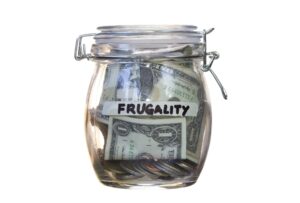Parenting styles can vary significantly across different economic backgrounds. The values and lessons imparted by parents often reflect the realities of their own life experiences, which are shaped by their socioeconomic status. In this context, the teachings of poor parents often differ from those of rich parents, with each set of values providing unique insights into managing life’s challenges. Here are ten lessons that poor parents are more likely to teach their children than their wealthier counterparts.
1. The Value of Resourcefulness
Poor parents often have to be resourceful with limited resources. They teach their children how to stretch a dollar, make do with what they have, and find creative solutions to problems. This resourcefulness fosters an ability to adapt to changing circumstances—an invaluable skill throughout life. Children from poorer backgrounds may learn to appreciate what they have and can often improvise solutions instead of relying on financial spending to resolve every issue.
2. The Importance of Hard Work
Often, poor parents work multiple jobs or long hours to make ends meet, providing a live demonstration to their children of what hard work looks like. They instill a work ethic that equates effort with potential rewards, underscoring that nothing comes without hard work. This lesson teaches children the importance of diligence and perseverance, crucial for achieving long-term goals regardless of socioeconomic status.
3. Frugality and Budgeting
Financial constraints necessitate tight budgeting skills. Poor parents teach their children how to budget out of necessity. These children learn early to prioritize expenses, save money, and avoid wasteful spending. This ingrained sense of financial management can lead to more financially prudent adults who can manage their finances effectively, even if they later achieve greater economic success.
4. Appreciating the Small Things
When large, material rewards are not always feasible, enjoyment comes from simpler, accessible pleasures. Poor parents often teach their children to find joy in the small, everyday things—like a family meal or a walk in the park. This can develop a sense of contentment and happiness that isn’t tied to material possessions.
5. Empathy and Community Involvement
Living in communities where everyone may face similar economic challenges fosters a sense of empathy and solidarity among neighbors. Poor parents often rely on community support to navigate tough times, and this teaches children the importance of looking out for others, offering help when they can, and the value of community involvement. Children raised in these environments may grow to be more socially aware and empathetic to the struggles of others.
6. The Reality of Economic Inequality
Poor parents are more likely to discuss and expose their children to the realities of economic inequality and social class differences. These discussions can make children more aware of societal structures and inspire them to strive for changes that could lead to a more equitable society. Understanding these dynamics from a young age can shape a child’s worldview and their place within it.
7. Self-Sufficiency
Due to fewer available resources, children in less affluent families often learn to be self-sufficient earlier. They may take on more responsibilities at home, learn to cook for themselves and manage some household tasks. This independence fosters a sense of capability and resilience, preparing them for self-reliance in adulthood.
8. The Importance of Education
Poor parents often emphasize the power of education as a pathway out of poverty. They teach their children that schooling can be the key to a better life, encouraging them to take their studies seriously and to view education as an investment in their future. This respect for education can drive children from low-income families to aggressively pursue higher education and personal development.
9. Negotiation and Advocacy
Children from poorer families often learn to advocate for themselves and negotiate from a young age. Whether it’s negotiating more time to pay a bill or advocating for fair treatment in situations of disparity, these children see these skills modeled in everyday survival strategies. These abilities are crucial for navigating both personal and professional landscapes successfully.
10. Long-Term Planning Over Instant Gratification
Poor parents who save money or plan for future expenses despite their limited means demonstrate the importance of long-term planning over instant gratification. Children observing this behavior learn the significance of setting goals and making sacrifices, a key component of success in any area of life.
Appreciating Things ‘Poor’ Parents Teach Their Kids That ‘Rich’ Parents Don’t
While the economic limitations faced by poor parents can present numerous challenges, they also provide a fertile ground for teaching valuable life lessons that children might not learn in more affluent environments. These teachings can equip children with the resilience, wisdom, and skills needed to navigate life’s complexities. Both poor parents and rich parents offer unique lessons that can shape a child’s future, but those taught by necessity often leave a lasting impact on personal growth and understanding of the world.
Read More:
15 Names Inspired by Iconic Cities That Are Perfect for Worldly Parents
Car Buying Tips for New Parents
Catherine is a tech-savvy writer who has focused on the personal finance space for more than eight years. She has a Bachelor’s in Information Technology and enjoys showcasing how tech can simplify everyday personal finance tasks like budgeting, spending tracking, and planning for the future. Additionally, she’s explored the ins and outs of the world of side hustles and loves to share what she’s learned along the way. When she’s not working, you can find her relaxing at home in the Pacific Northwest with her two cats or enjoying a cup of coffee at her neighborhood cafe.













Leave a Reply